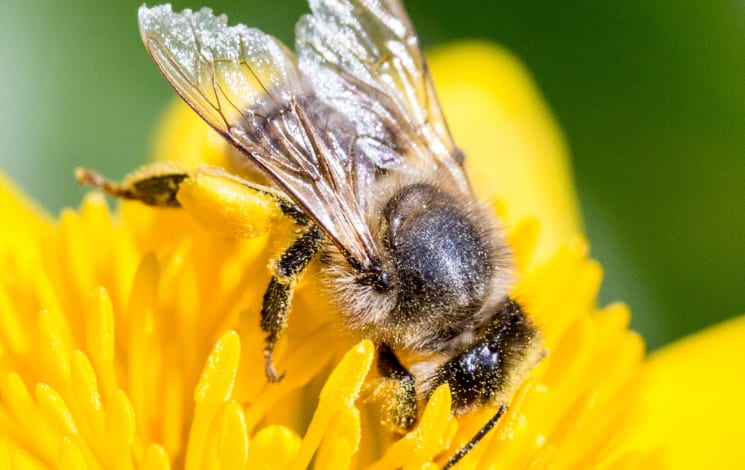IT IS inevitable North East beekeepers will have to deal with Varroa at some point following the state’s first incursion detected by Agriculture Victoria last month in the Sunraysia area.
“Varroa mite has been detected in a beehive located in Nangiloc near Mildura,” said Agriculture Victoria deputy chief plant health officer Dr Stephen Dibley, who confirmed the outbreak on August 15.
“Agriculture Victoria is working with the affected beekeeper and others close by to minimise spread and guide management actions."
Meanwhile in other parts of Victoria, beekeepers both commercial and hobbyists are being told the risk of spread is being managed but there will no eradication of the pest.
“Whilst it’s a long way from Mildura to Mansfield, Varroa will most likely be transported into this area sometime over the next two to three years by commercial beekeepers transporting hives into or through the district for pollination contracts or blackberry and eucalypt nectar flows,” explains Mansfield & District (MAD) Bee group Biosecurity Officer, Keith Padbury.
Latest Stories
“It has been estimated that there are (about) 5000 hives in the Strathbogies over summer at any given moment so it's difficult to believe we will escape infestation for an extended period.
“Monitoring and treatment of Varroa will become second nature to most beekeepers in much the same way as drenching or flystrike treatment is a necessary and routine event for sheep farmers.
“It is a simple matter really - If monitoring and treatment is not carried out, your managed hives will die.
“Responsible beekeepers will be attending Varroa treatment workshops over the next 12 months learning about monitoring, treatments, chemical rotations, timing and withholding periods.
“These workshops are free so there is no real excuse for not attending."
Hosted by the National Varroa Mite Management Program the next one for recreational beekeepers will be held at the Shepparton Golf Club, Saturday October 5 from 9am to 3pm.
“The most important activity district beekeepers should be undertaking is monitoring for mites using either sugar shake or ethanol washes,” Mr Padbury said.
“This should now be part of your routine hive inspections.”
Mr Padbury advised that monitoring should be done in the next few weeks and again at the end of summer.
“It should be remembered that honeybees were introduced into Australia in the 1840s.
“Prior to colonisation, pollination of native plants was carried out by a multitude of different insects, beetles, birds and mammals and that most of our staple food plants (wheat, rice, oats corn, etc) are wind pollinated and many fruit and vegetables are self-pollinating.
“In Europe, the UK and US, Varroa treatment is a routine part of beekeeping and has been for many years and will become so in Australia."
Wondermazing Honeybees’ Shane Doran from the Macedon Ranges and guest speaker on Varroa at the July Mansfield bee group’s meeting said, “Unfortunately no surprise there from the announcement.”
“As I said in my talk, we knew that the announcement would be made during the almond pollination event given what is known about where Varroa is in Victoria.
“Now we start the long haul of continuing to monitor our hives and treat as needed.
“Yes, we’ll lose a massive number of hives before it normalises but that’s expected too.
“With beekeeper movements I would be surprised if it’s not very widely spread within two years.
Victoria has employed 12 Varroa development officers (VDO) to support beekeepers to manage Varroa.
The current focus of Agriculture Victoria and these officers is supporting the almond pollination season in the Sunraysia region.
The state’s apiary biosecurity system requires all Victorian registered beekeepers to inspect and record mite inspections.
For more information on Varroa requirements and sighting visit the Agriculture Victoria website.
Book online at https://events.humanitix.com/host/national-varroa-mite-management-program or call 1800 958 485 for the Shepparton workshop.















